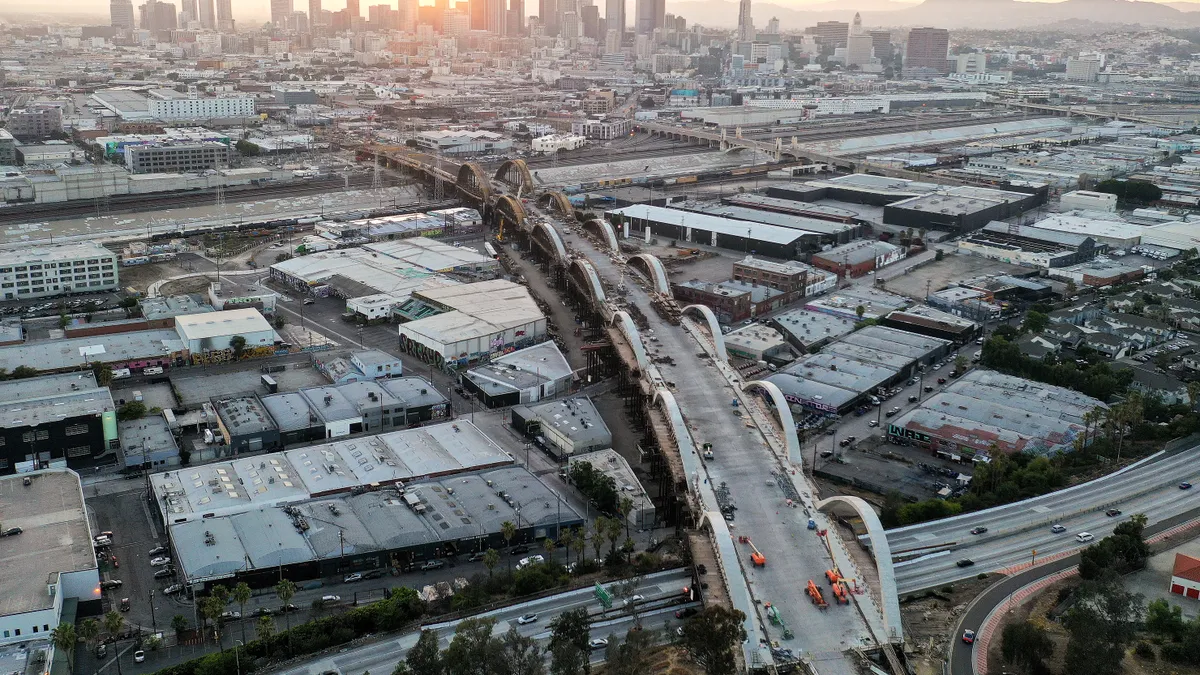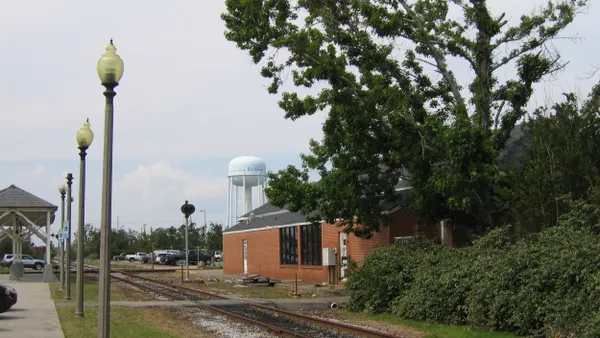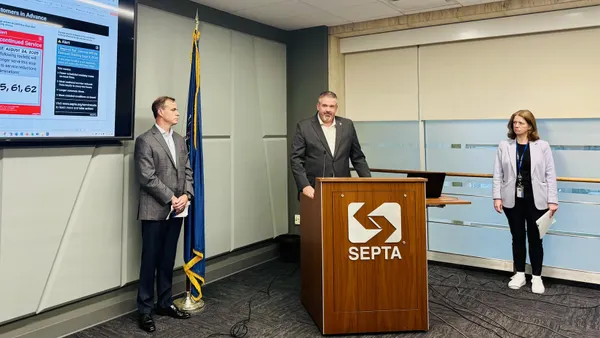Dive Brief:
- The nearly $60 billion transportation provision of House Democrats’ $3.5 trillion budget reconciliation bill could offer new support for a variety of transportation projects through a new greenhouse gas (GHG) reduction program that targets non-state governments.
- The House Transportation and Infrastructure Committee advanced the legislation last week, which sets aside $4 billion for community climate incentive grants that would fund projects that reduce GHG emissions. Three billion dollars is set aside for non-state entities, which experts say, could be a boon for city governments and metropolitan planning organizations.
- It also requires the U.S. Department of Transportation's Federal Highway Administration (FHA) to set GHG performance metrics, in which states would set emissions targets and receive incentives to meet those goals.
Dive Insight:
Democrats have vowed to use the reconciliation bill to advance sweeping climate provisions, especially after the bipartisan infrastructure bill passed by the Senate scaled back some of the Biden administration’s clean transportation ambitions. The Senate bill, for example, would spend $110 billion on roads, highways, bridges and surface transportation, and $39 billion on transit, down from the $49 billion announced in negotiations with the White House.
"We can choose to seize this historic opportunity and reimagine our transportation sector for a new era of decarbonized travel and reconnected communities. Or we can fall short, and lock in a status quo approach that has already led us to the brink of a climate catastrophe," said House Transportation and Infrastructure Chairman Peter DeFazio, D-Ore., in his opening statement at last week’s 15-hour markup.
Key to that plan is funding for the FHA to establish a GHG performance measure, which would incentivize states to move towards net-zero surface transportation emissions by 2050. The program has precedent — in the 2012 transportation reauthorization bill, Congress created a performance management framework that laid out national goals for transportation, including environmental sustainability. The Obama administration released a rule in 2017 requiring states and metropolitan planning organizations to track GHG emissions and set reduction targets, but the Trump administration reversed the rule citing the cost to transportation departments.
Under the House budget reconciliation bill, the Department of Transportation would be required to develop an incentive structure which rewards states that make progress towards their GHG emission reduction goals and would "establish consequences" for those states that do not. The bill also creates new grants for transportation projects that reduce GHG emissions.
Kevin DeGood, director of infrastructure policy at the Center for American Progress, said that setting aside a majority of the GHG reduction funding for non-state actors could lead to more innovative projects, including complete streets projects or replacements for highways in minority neighborhoods.
State transportation departments care about the assets they own, and that’s usually the interstate system and roads of a certain size," DeGood said. "They tend not to care about local roads, transit systems, shared streets. Local governments see the world through a different lens."
The bill also dedicates $10 billion for public transit — which would close the gap between the Senate infrastructure bill and the White House proposal that environmentalists have decried. It would also provide $10 billion for high-speed rail and another $4 billion that would go to a new program to reconnect communities divided by highways and "existing infrastructure barriers," a priority for environmental justice advocates.
"These communities can sometimes be seen as sacrifice zones and a tremendous amount of pollution affecting low-income and minority people is around highways," said Katherine García, director of the Sierra Club’s Clean Transportation for All campaign. "We see this as a constructive way of rethinking the land use of these areas that prioritizes people’s health."
The transportation provisions will be combined with other committees’ work on the floor in the coming weeks but may be subject to cuts as Democrats argue over the size of the bill.
"We absolutely need to see investment at the level needed, given the climate crisis, to reduce emissions rapidly," said García. As the start of the United Nations climate conference in Glasgow, Scotland, approaches at the end of next month, she said, "We need policies that address transportation emissions, otherwise we’ll miss the goals we are setting. Achieving those goals requires real investment."










